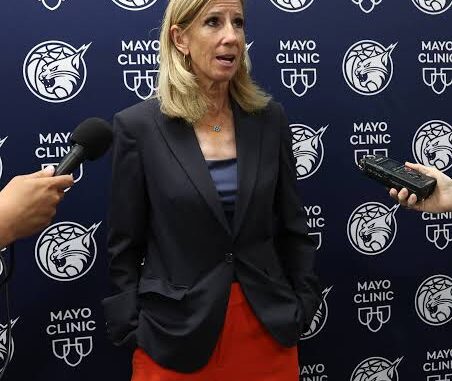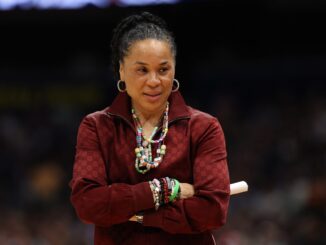
Cathy Engelbert has steered the league since 2019 and overseen a period of strong commercial growth. Yet multiple team-owners and stakeholders now tell ESPN they’re increasingly unhappy with her handling of key issues. One owner said bluntly: “If I had a vote … I would probably ask for a replacement.”
The friction has been amplified by public criticisms from players. For example, Napheesa Collier labelled league leadership “the worst … in the world,” asserting Engelbert’s office failed in communication and accountability. The specific trigger was Collier’s claim that Engelbert told her rookie star Caitlin Clark should be “grateful” for the platform the WNBA gave her a comment Engelbert denies.
Bottom line: While Engelbert has defensible commercial success under her belt, her relationships with the players and some owners are under serious strain.
Officiating has emerged as a major point of discontent. In the 2025 playoffs, coaches and players alike flagged inconsistencies, lack of resources (e.g., no replay centre in certain arenas) and poorer camera setups. According to one team-executive: “My first issue … is not the officials, it’s that it’s not resourced … replay centre.”
The upshot: complaints that the standard of officiating is not matching the growth of the league, which risks undermining both credibility and player safety.
CBA negotiations & what’s at stake
The current CBA expires on October 31 2025. Players are pushing hard for a deal that reflects the league’s recent growth including a greater percentage of revenue-sharing, improved minimum and maximum salaries, stronger benefits and enhanced working conditions.
From the owners’ side, there is caution: some view the WNBA as growing rapidly and worth long-term investment; others see immediate cash-flow pressures. The dynamic between owners, players and the commissioner’s office could shape the deal and Engelbert’s future. One executive said: “If she can repair relationships … and get a good CBA done, then yeah I think she can stay.”
What’s clear is that the next few months are pivotal: a new CBA is more than a contract, it’s a validation of how the league sees its players, its business model, and its long-term credibility.



Be the first to comment